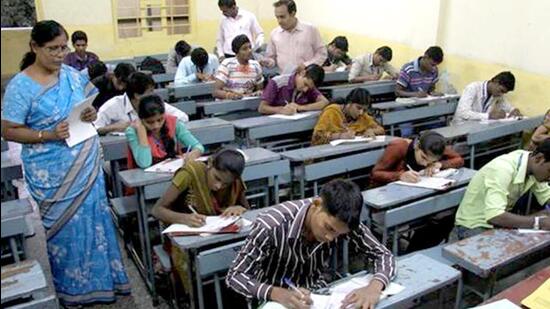Telangana government plans to introduce coding in SC residential schools for 2025-26 session
The government will introduce courses in artificial intelligence, machine learning, computer coding, robotics and other related courses in all social welfare residential educational institutions
The state government has announced its decision to introduce courses in artificial intelligence, machine learning, computer coding, robotics and other related courses in all social welfare residential educational institutions meant for Dalit students across the state, from the upcoming academic year 2025-26.

In a statement on Wednesday, Telangana social welfare residential educational institutions society (TGREIS) secretary VS Alagu Varshini said coding courses would be introduced for students from Class 6 to 12 from the next academic year. “Until last year, computer coding was taught only at one institution at Moinabad in Rangareddy district. Now, it will be introduced in all the 238 SC residential schools and colleges across the state with more courses,” she said.
“The state government’s objective is to see that students from Classes 6 to 12 studying in social welfare residential institutions get exposure to cutting-edge technologies like artificial intelligence, coding, machine learning, robotics and other online tools,” Varshini said.
As part of the exercise, she said, the body entered into a five-year memorandum of understanding (MoU) on Tuesday with Raspberry Pi Foundation (RPF), a London-based institution, which would provide training, curriculum, action plans, monitoring, and pedagogy guidance under its supervision.
“Five students from each school were selected for experimental implementation by the Raspberry Pi Foundation during the concluding academic year. Encouraged by the positive results, the Foundation agreed to extend the initiative across all schools from the 2025–26 academic year,” she further said.
“Computer coding will be introduced as a regular subject across all schools, with two hours each for classes and project work. Students will receive textbooks designed by the Raspberry Pi Foundation. About 1,52,000 students will learn coding as a subject and be evaluated accordingly,” the secretary said.
Certificates will be awarded to students who complete the course. In addition to Coding, AI, and ML training, around 250 students will get the opportunity to work on live projects every year, Varshini added.
She further said for the first time, the Telangana government partnered with several startup organizations to make technology courses accessible to students, with a view to equip children with future-ready skills. Every school will have a “Coding Club,” she said, adding state-of-the-art computer labs will be established in all the schools.
Varshini said the AI course, particularly, would help students understand foundational concepts and usage. “Maths and science concepts would be taught using visual media, animations, games, and storytelling, which is encouraging creativity and enhancing computer skills.”
“Every three or six months, students excelling in coding will develop projects based on their skills, which will be featured on a dedicated website. This platform allows companies to identify and select suitable projects, offering annual stipends to the selected students,” the secretary added.






